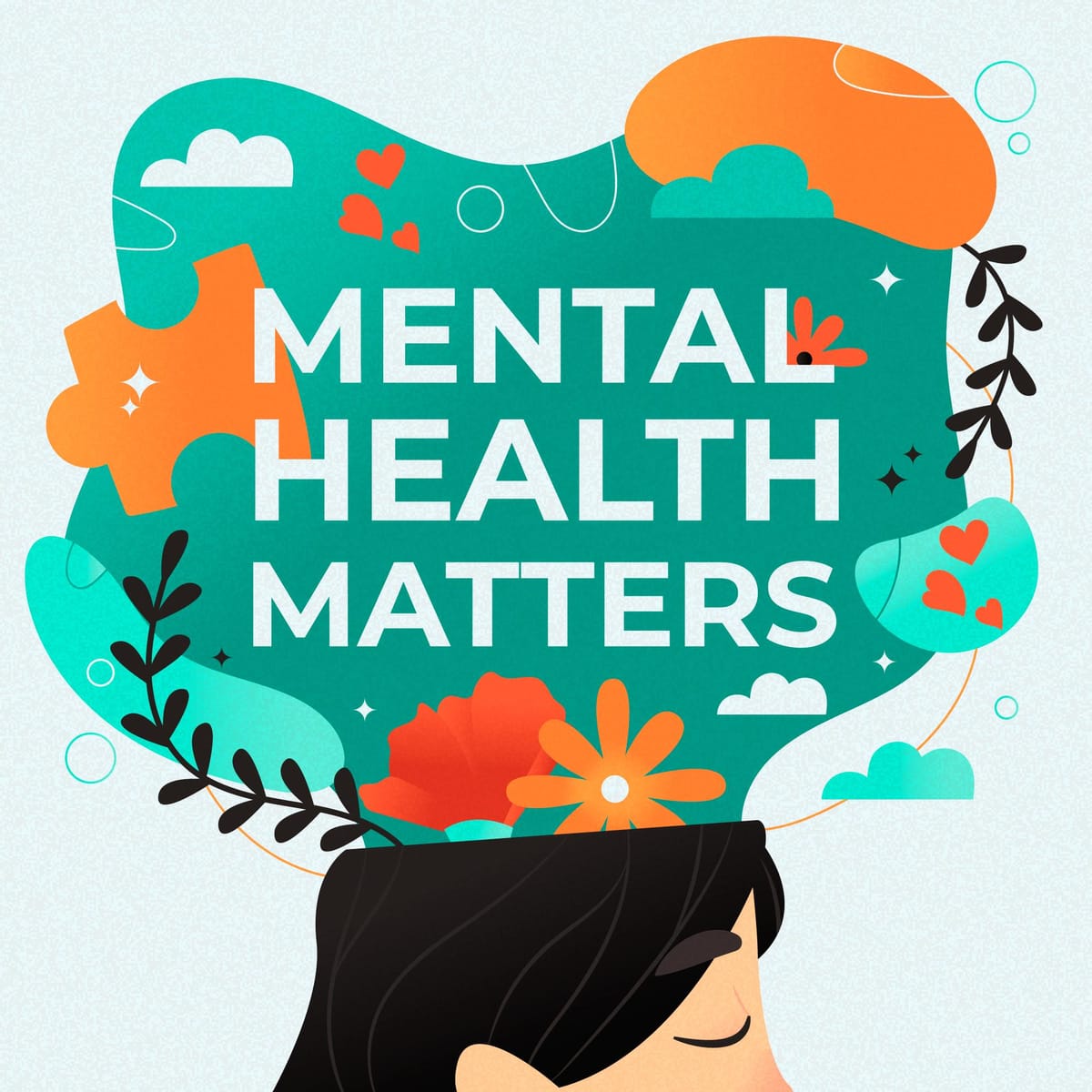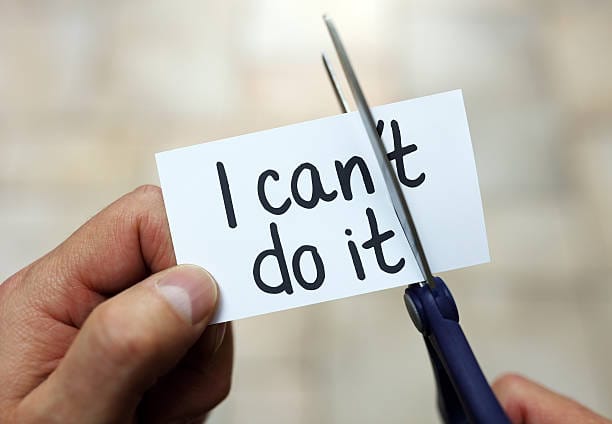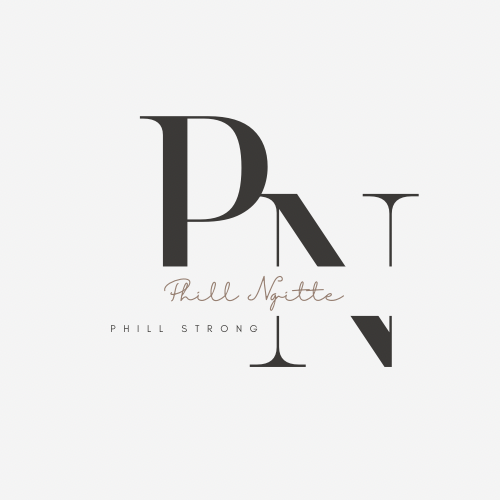FINDING STRENGTH WITHIN: HOW TO DEVELOP INTRINSIC STRENGHT TO SUPPORT MENTAL HEALTH

Introduction
In a world where external pressures often feel overwhelming, many of us seek strength in others or external circumstances to manage our mental health. However, true resilience lies within ourselves and our capacity to tap into that infinite source of motivation and dedication. Intrinsic strength- referring to different authors and sources can be defined as the inner ability to persevere, grow and adapt. It can be cultivated to navigate through life's challenges more effectively without ignoring difficulties but focusing rather on improving everyday. Drawing from my personal experience, professional knowledge, and research, I aim to explore how intrinsic strength can help us foster mental wellbeing.
How to recognise intrinsic strength and why does it matter?

An individual's internal resources, such as self-confidence, emotional regulation and mental resilience, to cope with adversity are the basis of intrinsic strength. Unlike external support systems (e.g friends, relatives, family, social media or therapy), intrinsic strength comes from within, providing a lasting foundation for mental health.
- Studies shows that self-efficacy, a key component of intrinsic strength, significantly improves mental wellbeing by enhancing our ability to face challenges( Bandura, 1997). For example, believing that you can learn new skills and develop new abilities even if you have never tried before, also actively taking steps to practice and improve with confidence and dedication.
- Intrinsic motivation and personal values also play a role in how we perceive and overcome obstacles (Deci & Ryan, 1985). If you are not able to self-motivate, you will have a lot of difficulties to receive motivation from external sources especially when they will not be available.
- It is important to develop those inner capacities that will push you forward and will fuel your desire to accomplish what you thought impossible because you were trapped in that negative spiral of failure. Our mind is our strongest asset. Spending time building and strengthening it (like exercising in the gym to build muscle) is crucial in order to be prepared to face the multiple challenges that will arise.
My journey to Building Intrinsic Strength
Growing in my home country Cameroon and even now, I struggled a lot with feelings of inadequacy and its weird to say it like this but as an overthinker, I always felt uncomfortable in many aspect of my life. I grew up in monoparental family and we had to move a lot from different places to settle; being the only "man" of the household although the youngest, I had difficulties to express the changes I was experiencing. I always relied on my family to help me manage my frustrations that kept on growing bigger over the years. Over protected by my family, younger I could not explore my little world as i wished and it slowly modified my way of seeing life. I started seeking for more adventures outside of the household when I grew older as I felt incomplete and I instinctively needed to make my own idea of life by myself. I was slowly building those intrinsic blocks that would carve my personality.
At one point, I realised I had to rely on myself rather than external validation to find balance. I started implementing small habits that helped build my inner strengths:
- Journaling: writing down my thoughts allowed me to process emotions constructively. Nonetheless, I learned this at an older stage because I was too scared that someone would have access to my journal and have an insight in my deepest insecurities. I rather used to draw, write poems, lyrics and other artistic way to expose my frustrations.
- Mindful cooking: While still a kid, I used to play a lot with girls and one aspects of those games was to play family roles. I was always fascinated with the cooking part because we used to fake cooking using bottles, mud, sand, leaves and everything that our imagination could enable us. When i was about 8years, i cooked my first meal (it was quite terrible) but it felt like an illumination and developed my passion for gastronomy. Slowly, cooking became my therapy- a way to stay grounded and focus on the present moment while taking better care of my health and my mental health as well.
- Reframing Negative Thoughts: I hate focusing on negative thoughts. It makes me very uncomfortable and I often overthink a lot about it which tends to worsen everything around me. I developed a mechanism to avoid being overwhelmed by my negative thoughts- instead of seeing setbacks as failures, I began viewing them as opportunities for growth. I used my negative experiences as fuel to do better and become a better version of myself because I hate feeling like a "loser".
All of these practices contributed to a sense of self-reliance and clarity.
How to Cultivate Intrinsic Strength for mental Health

If you are looking to develop intrinsic strength, here are actionable strategies backed by research and personal insights;
- Practice self-reflection
Taking time to reflect on your thoughts, emotions and behaviours is the first step towards self-awareness. To do this, you must be in a calm environment away from external distractions, be objective and truthful with yourself, acknowledge your errors (it is important to identify areas for improvement) and value your achievements (the trick is, focus even on the slightest ones).
- Research shows that self-reflection helps individuals identify stressors and develop coping strategies (Sutton, 2016).
Tip: Dedicate 10 minutes a day to journaling or meditating while playing some music in background to boost your dopamine levels and help building a sense of wellbeing.
- Develop Emotional Resilience
Resilience is not just about avoiding difficulties but about bouncing back stronger. Finding a way to always come back stronger when life hits you. Mike Tyson once said;
You think you know the difference between a hero and a coward, Mike? Well, there is no difference between a hero and a coward in what they feel. It is what they do that makes them different. The hero and the coward feel exactly the same but you have to have the discipline to do what a hero does and to keep yourself from doing what the coward does.
- Techniques such as mindfulness and breathing exercises can reduce stress and enhance emotional regulation (Kabat-Zin, 1994). This one helps to reduce immediate stress/anxiety because it helps focusing on just one thing and oxygenating appropriately the brain thus enhancing clarity.
Personal example: When I moved from my country to the UK, it was a very daunting experience because things were not like I expected. Practicing deep breathing helped me to manage overwhelming feelings and approaching the situation calmly.
- Align your actions with your Values
Understanding and living by your core values can give you a purpose and motivation. It was very important for me to always remember who I am even though I was going through difficult situations to avoid losing my focus and become someone I could not be able to recognize.
- Studies suggest that value-based living is linked to greater psychological flexibility and mental health (Hayes et al., 1999)
Tip: Identify 3-5 values that resonate with you (e.g., compassion, growth, religion, spirituality, generosity, humanism or creativity) and ensure your daily choices align with them to the best you can.
- Build Self-Compassion
Being kind to yourself during tough times fosters intrinsic strength. It is a crucial aspect of building self-confidence without building ego through the acknowledgement of our own limits.
- According to Dr. Kristin Neff, self-compassion involves treating yourself with the same kindness you would offer a friend, relative or someone you love without being too hard with yourself (Neff, 2003).
Tip: Replace self, critical thoughts with supportive ones. For example; it is preferable to say " I am not perfect, I can do errors like everyone but that does not defines who I am" rather than saying " I always do silly mistakes, I am a loser. I will never be able to accomplish great things".
- Cultivate a Growth Mindset
A growth mindset is the belief that abilities can be developed through efforts-enhances resilience and perseverance. Always believe that you do not need to learn at the same pace like others, you have your own mechanism and focusing on your personal development is more effective than comparing yourself with other people. Focus on your growth and stick to it.
- Research by Carol Dweck (2006) highlights the power of mindset in overcoming challenges. As said earlier, our mind is our greatest asset and taking care of strengthening it, is an important aspect of our self development and will carve our whole personality.
Personal Experience: When I was younger, I was a little lazy and did not focused on myself, taking for granted things I naturally mastered and avoiding things too hard for me to understand. Growing in a challenging environment made me to realise that I have infinite potential but limited to the amount of efforts and dedication I put forward. I started moving out of my comfort zone ans trying many different things. That is how facing different situations carved my mindset over the years and adopting a growth mindset helped me embrace the learning curve rather than fear failure.
How Intrinsic Strength Ties to Mental Health

Intrinsic strength doesn't replace external support but complements it. When combined with therapy, social connections, and other mental health resources, intrinsic strength becomes a powerful tool.
- For example, studies show that individuals with higher levels of self-efficacy respond better to therapy and report improved mental health outcomes (Richardson et al., 1990)
Final Thoughts: Embracing your inner Strength
Developing intrinsic strength is a journey, not a description. By focusing on self-awareness, resilience, and personal growth, you can create a stable foundation for mental well-being. As I have learned through my own experiences, small, consistent steps can lead to significant change.
I encourage you to reflect on your intrinsic strength and start incorporating these practices into your daily life. Remember, your inner resilience is always within reach- it's just waiting to be nurtured.
References
- Bandura, A. (1997). Self-Efficacy: The exercise of control.
- Deci, E. L., & Ryan, R. M. (1985). Intrinsic Motivation and Self-Determination in Human Behavior.
- Kabat-Zinn, J. (1994). Wherever You Go, There you Are: Mindfulness Meditation in Everyday Life.
- Neff, K. (2003). Self-Compassion: An Alternative Conceptualization of a Healthy Attitude Towards Oneself.
- Dweck, C. S. (2006). Mindset: The New Psychology of Success.
- Richardson, G. E. (1990). "Resilience and Human Adaptability". American Psychologist.




